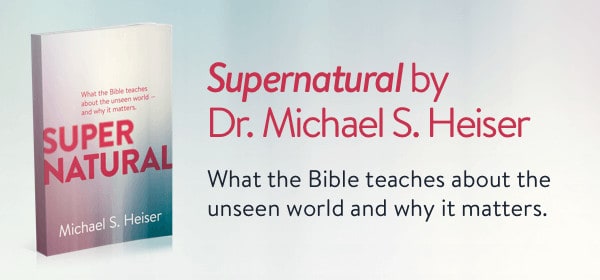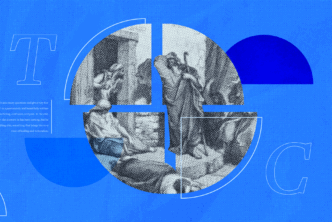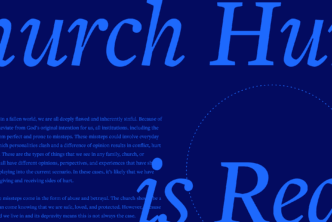Dr. Michael Heiser believes that as modern Christians we are “selectively supernatural.” Our modern worldview makes it difficult to recognize the full extent of the supernatural fingerprints on our Bible. While Bible scholars widely acknowledge the presence of “the divine council,” nephilim, and numerous other intersections between our world and the unseen realm in Scripture, passages like 1 Peter 3:19–20 rarely make it into sermons because to the vast majority of Christians, they are simply too foreign.
It’s far easier to skirt around difficult passages in Scripture than it is to fully adopt an ancient worldview. While some of us may be comfortable accepting that we’ve “got the gist of it” by accepting the resurrection of Christ, miracles, etc., there is an entire layer of Scripture most of us miss—and that layer matters. Heiser says, “it’s the difference between analog and HD TV.”
Recovering the supernatural worldview of the Bible helps shed light on the violence of the Old Testament, the Tower of Babel, the Garden of Eden, God’s plan to restore humanity to himself through Jesus, and more—and the implications will affect the way Christians think on a daily basis.
In a recent talk at Faithlife (recorded here), Dr. Heiser shared his hope for you as a reader of Supernatural. After touching on the core ideas of the book, he said:
“If you really believe that, that will change how you get up, how you approach each day. It will train your mind to think, ‘What I do matters.’ . . . What I’m asking people to do is take the long look—look at your life the way God looks at it. It’s going to be a series of ripple effects that extend far beyond what you’re ever able to see, but that he sees, and he’s not the only one that’s looking, too.”
For over 20 years, Dr. Heiser has compiled and researched everything Bible scholars know about how the ancient Hebrews understood the supernatural and its influence on our world—which in turn, informed how they understood Scripture (including the passages we consider bizarre). His bibliography, largely comprised of peer-reviewed journal articles, is longer than some books. Heiser claims there is not one point he makes in the book which he cannot support with credible Bible scholarship. The trail is there for you to follow. Still, you will likely encounter new ideas and interpretations you’ve never come across before—simply because you were never exposed to it.
Together, The Unseen Realm and Supernatural represent the culmination of Dr. Heiser’s 20+ year study. So what’s the difference? The Unseen Realm shows you how the ancient Hebrew worldview affects you as a reader of the Bible. Supernatural shows you how it affects you as a believer. Or as I like to put it—The Unseen Realm contains insights and conversations you might encounter in a college classroom, while Supernatural is like chatting with Dr. Heiser over a cup of coffee. It’s a different context for the conversation. Each chapter of Supernatural ends with a “Why This Matters” section so you can take the conversation into your daily life as a Christian. As you can imagine, after 20 years and with a bibliography that long, Heiser has plenty to say about how the ancient Hebrew worldview affects modern Christians.
Here’s what he asks you to think about as you learn to read the Bible like the ancient Hebrews:
“Are you conscious of being God’s agent? . . . Are you living intentionally in ways that advance and restore the kingdom, and that defy the human and spiritual evil around you? If you really believed that you were part of a big program aimed at doing that, you would want to play a role. . . . You want to be useful because your destiny is to be reunited in an edenic, global Eden, not only with God and with Jesus, but with everybody else—divine and human—who have aligned themselves with God.”
Get your copy of Supernatural today and see for yourself what scholars say about the hidden world of Scripture.
* * *
Get the Logos edition of Supernatural: What the Bible Teaches about the Unseen World—And Why It Matters.






